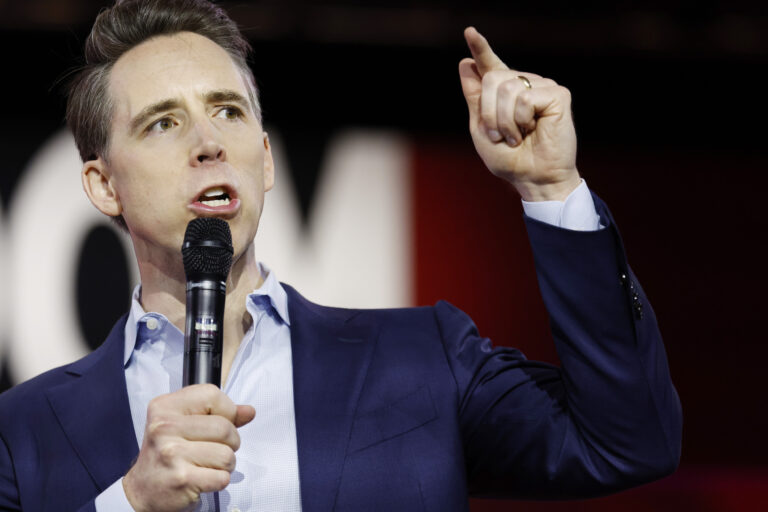American families could receive thousands of dollars from the Trump administration under a new bill introduced by Senator Josh Hawley.
Newsweek reached out to Hawley’s office for comment via email.
Why It Matters
Tariffs have brought in more than $100 billion to the United States so far in 2025, leaving legislators debating how those funds would best be spent. Hawley, a Missouri Republican, is proposing to use that money on direct payments for millions of Americans.
The bill comes after many economists have warned that tariffs could lead to Americans paying higher prices for goods over time. So far, consumer inflation data does not suggest there have been major price increases due to the policies, as President Donald Trump put some tariffs on pause to try to negotiate trade deals. But critics say prices could still rise in the future due to tariffs.
What Is the American Worker Rebate Act of 2025?
Hawley introduced the American Worker Rebate Act earlier this week. If passed, the legislation would use revenue from tariffs to fund direct payments for Americans.
The bill would provide a tariff rebate check to American workers and families this year, “with similar parameters to the direct payments passed by Congress in 2020,” Hawley said in a statement this week.
The payments would be at least $600 per adult and dependent, so $2,400 for a family of four, according to Hawley’s office. It would allow for larger payments if tariff revenue increases.
“It is the policy of the United States to use revenue raised from tariffs applied on foreign imports to provide relief for working people through immediate tax rebates,” the bill reads. The payments would need to be made “as rapidly as possible,” and refunds should not be made after December 31, 2026.

Anna Moneymaker/Getty Images
Kevin Thompson, the CEO of 9i Capital Group and the host of the 9innings podcast, told Newsweek a rebate would be essentially a “small tax refund.”
“The impact would be minimal for most Americans, especially as grocery and utility prices have risen so significantly over the past few years. In fact, this could even add a slight bump to inflation,” he said.
Most of the money would likely “end up on corporate balance sheets, either through consumption or paying down household debt,” he said.
“Any potential rebate is just your own tax dollars being handed back to you, like a quasi-tax refund. In my view, this is more of a distraction than a solution,” he said. “Because the real issue isn’t just the trade gap, it’s the strategic leverage that trade deficit gives us globally. The U.S. dollar’s dominance isn’t just about transactions; it’s about influence, power, and regional control.”
What Has Donald Trump Said About a Rebate Check?
Trump indicated in July that his administration was considering a rebate check, telling reporters that he is “thinking about a rebate” because of the revenue. He indicated that paying down the national debt is a priority, however. The debt remains over $36 trillion.
“We have so much money coming in, we’re thinking about a little rebate,” he said. “But the big thing we want to do is pay down debt. But we’re thinking about a rebate.”
Hawley responded that he would “introduce legislation in the Senate to send a rebate check to every working person in America.”
What People Are Saying
Senator Josh Hawley, in a statement: “Americans deserve a tax rebate after four years of Biden policies that have devastated families’ savings and livelihoods. Like President Trump proposed, my legislation would allow hard-working Americans to benefit from the wealth that Trump’s tariffs are returning to this country.”
Senator Ron Johnson, a Wisconsin Republican, told The Washington Post he believes funds should be used to lower the national debt: “We’re $37 trillion in debt. We’re running deficits close to $2 trillion. I wouldn’t support it. At some point in time, this madness has to end.”
What Happens Next
It’s unclear whether Hawley’s bill would receive enough support to pass the Senate, with Johnson and other Republicans expressing skepticism about the bill.


